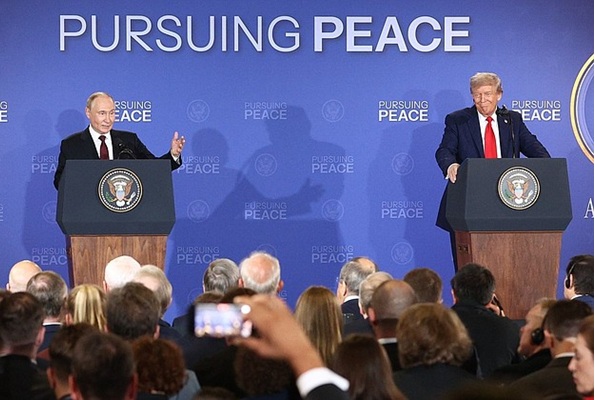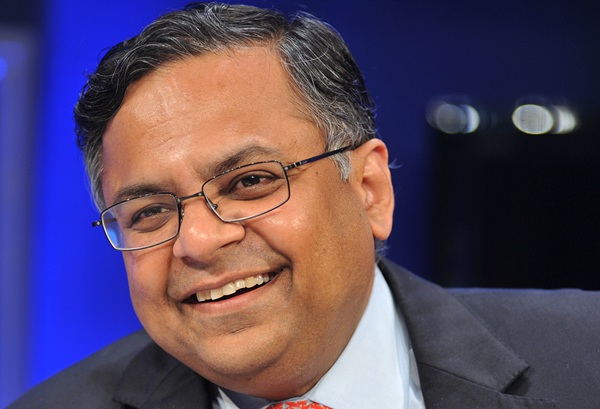.png)
Risk-Off Sentiment Deepens on US–Russia Tensions, Shutdown, and Fed Uncertainty
Here’s your quick read to start the day: a chatty, no-fuss look at overnight moves, the big story, what’s on the docket, and the tickers you need to watch.

October 3, 2025 at 1:04 AM IST
GLOBAL MOOD: Risk-off
Investors remain cautious amid heightened geopolitical tensions between the US and Russia over Ukraine, coupled with a partial US government shutdown and uncertainty over the Federal Reserve’s next policy moves. Safe-haven assets are attracting flows, while equities face pressure from both domestic policy risks and international instability.
TODAY’S WATCHLIST
- ECB President Lagarde Speech
- Bailey Speech
THE BIG STORY
Meanwhile, US Federal Reserve Bank of Dallas President Lorie Logan defended last month’s rate cut as a precaution against a worsening labour market but cautioned that further reductions should be approached carefully to avoid destabilising inflation. She emphasised that gradual cooling is occurring and warned against easing conditions too aggressively, which could force painful reversals to restore price stability.
Data Spotlight
The US government shutdown has led the Labor Department to pause all activity, including the scheduled Friday release of the September nonfarm payrolls report.
Takeaway:
WHAT HAPPENED OVERNIGHT
- US Stocks hit record highs amid private labour data during Government shutdown
- S&P 500 edged higher, holding valuations near 2020 peaks.
- Nasdaq rose 0.4%, led by Nvidia, Apple, and Broadcom.
- Equifax and TransUnion fell 8.5% and 10.6% after FICO launched an alternative credit score program.
- FICO shares surged nearly 18% on the new program.
- S&P 500 edged higher, holding valuations near 2020 peaks.
- US Treasury yields dip on slowing growth, Government shutdown
- 10-year US Treasury yield fell to a two-week low below 4.1% on Thursday.
- Market anticipates two more Fed rate cuts this year amid slowing growth.
- Extended US government shutdown fuels worry over economic activity and public sector job cuts.
- Potential delay of employment data adds to pessimism and pressure on yields.
- 10-year US Treasury yield fell to a two-week low below 4.1% on Thursday.
- US Dollar rebounds to 98 amid US Government shutdown concerns
- The US dollar climbed to 98, snapping a four-day losing streak.
- Gains were driven by concerns over the economic impact of the ongoing US government shutdown.
- Dollar strengthened against the euro and yen, reversing prior losses.
- Delay of weekly jobless claims and upcoming non-farm payrolls report adds uncertainty.
- The US dollar climbed to 98, snapping a four-day losing streak.
- Crude oil prices drop to a 4-month low on oversupply concerns
- Brent crude oil prices fell 1.9% to $64.11 a barrel, the lowest since June 2.
- US WTI dropped 2.1% to $60.48 a barrel, the lowest since May 30.
- Prices extended a four-day decline on fears of oversupply ahead of the OPEC+ meeting this weekend.
- Brent crude oil prices fell 1.9% to $64.11 a barrel, the lowest since June 2.
Economic Data
- Euro Sep Composite and Services PMI
- Euro Aug PPI
- Fed Balance Sheet
- India FX Reserves
- Japan Sep Composite and Services PMI
- US Sep Composite and Services PMI
Corporate Actions
- Covidh Technologies to consider right issue
- Muthoot Microfin to consider fund raising
- Shukra Pharmaceuticals to consider warrant issue
- Zaggle Prepaid to consider fund raising
Policy Events
- ECB President Lagarde Speech
- Fed Williams Speech
- Fed Jefferson Speech
- BoE Gov Bailey Speech
Tickers to Watch
- ASHOK LEYLAND Sept despatches up 9% YoY at 18,813 units
- ASHOKA BUILDCON takes 61% stake in JTCL with ₹166 crore acquisition deal
- BAJAJ AUTO’s domestic 2-wheeler despatches hit 23-month high in Sept
- COAL INDIA Sept sales down 1.1% YoY; production falls 3.9%
- EICHER MOTORS Sept CV wholesale sales at 7,619 units, largely flat YoY
- Moody’s revises JSW STEEL’s outlook to positive from stable on growth strategy
- HERO MOTOCORP Sept domestic sales rise 5% YoY to 647,582 units
- HYUNDAI MOTOR kicks off passenger vehicle production at Talegaon facility
- M&M Sept car despatches hit record high on GST cut, festive demand
- MARUTI SUZUKI Sept production rises 26% YoY; PV, SUV output surges
- NMDC Sept iron ore sales rise 10% YoY to 3.88 mln tn; output up 23%
- TATA MOTORS Sept despatches rebound on GST cuts, festive demand
- TVS MOTOR posts record Jul–Sept quarterly sales at 1.51 mln units
- ULTRATECH CEMENT takes over leasehold rights from Aditya Birla Real Estate
Must Read
- Fifteen Years After Pittsburgh, the Global Economy Is Still Out of Balance
- RBI Fixes its June Communication Misfire
- RBI’s Baby Steps on Rupee Globalisation: Useful Nudges, But…
- Unguarded Lending Won’t Fix Investment Demand
- India’s Economic Balancing Act Faces Tariff and Oil Test
- Abu Dhabi's IHC to pick up 43.5% in Sammaan Capital for $1 billion
- Reliance Retail worth $143 billion, Jio valued at $135 billion: JP Morgan
- Trump’s Budget Chief, Slayer of Big Government, Moves Quickly in Shutdown
- Trump Threatens Far-Reaching Cuts at Federal Agencies
- ECB’s Villeroy Urges Bold Steps to Bolster Euro’s Global Role
See you tomorrow with another edition of The Morning Edge.
Have a great trading day.
What Does it Mean to be Forward-Looking?
RBI calls its pause “forward-looking.” But with inflation projections revised downwards and real rates above 3%, is caution becoming costly?
Over-forecasting inflation has kept policy tighter than necessary, even as growth slows, writes former MPC member Ashima Goyal in her column for BasisPoint.
Ashima Goyal writes, a timely 25-bps cut, paired with dovish guidance, could have anchored expectations, eased debt burdens for MSMEs and households, and supported output before stresses build further. Forward-looking policy, she suggests, means anticipating—not waiting.



